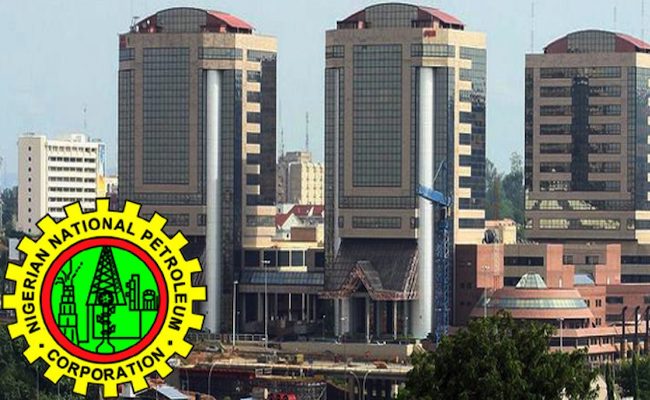…queries $17.5bn cost of crude oil production
By Tom Okpe
The House of Representatives has queried the Group Managing Director of the Nigerian National Petroleum Corporation Limited, (NNPCL) Mele Kyari over non-remittance of outstanding sum of $278,184,937.72 from the transfer of OML 24 to NNPCL/NEPC in 2019.
It also, summoned the NNPCL over yearly incurred $17.5bn on crude prosecution.
According to Nigerian Upstream Petroleum Regulatory Commission, (NUPRC) records, OML 24 was transferred to NNPCL/NEPC in 2019 for a Signature Bonus of $309,094,374.72 of which only $30,909,437 has been paid, thereby leaving an outstanding of $278,184,937.72 due to Government from the NNPC/NEPL.
Chairman, House Committee on Finance, Rep James Faleke, made this known on Wednesday in Abuja during an investigative hearing into the cost of crude oil
production and its impact on government revenue.
He alleged that the transfer of the assets reduced the amount of oil acruable to the federation.
Faleke frowned at the secrecy in the management of the industry, observing that, “from 2014 to 2024, our costs have increased by about $18 million per day or $6.6 billion per annum over 10 years.
“This has not led to increase in either reserves or production. This further implies that for a production of one million barrels per day, we are incurring costs of $48 million per day or $17.5 billion per annum,” Faleke stated.
READ ALSO: Stakeholders want NASS to adopt Auditor-General’s..
He demanded for details of production costs of PSCs and other partnership arrangements or part of the $48.71 given by the the Federal Inland Revenue Service (FIRS) and historical cost of production computations from 2014 to date.
Faleke stressed the need for information bothering on the status of the $3.3 billion forward contract executed by NNPCL.
“Has lifting repayment started? Has the whole fund been received? Have the funds been released to the federal government as advance payments for taxes, royalties, as explained during the justification of the loan.
“We need a list and status of all forward contracts executed by the NNPCL from 2014 to date. What assets were used to secure all these contracts?
“We noticed that NNPCL has been transferring federation crude to NPDC/NEPL, thereby shifting FG income from a daily profit oil to an annual dividends payment.”
The committee chairman observed that, “It is important that Nigerians understand the impact of production costs on the available revenue acruable to the federal government to execute its programs in the Nnational budget.
“The higher the cost of extracting a barrel of crude oil from the ground, the less funds available to the government and Nigerians.
“The committee has been given a total cost figure of $48.71 per barrel by the FIRS for calculation of petroleum profits tax and hydrocarbon tax, which will also be used by the INCL for profit calculations.
“Over the years, Nigeria’s cost of oil production, both capital costs and overhead costs, has continued to increase reaching new unprecedented highs of over $48 per barrel.
“This implies that as crude oil now sells at about $80 per barrel, for us in Nigeria with a cost of extraction of about $48, only $32 is left to be shared with the oil companies.
“Compare that with $9 in Saudi Arabia, $21 in Norway or $24 for US shale oil and we see that Nigeria has one of the highest costs of oil production in the world.
“If we look further at these costs, we see they have risen steadily in Nigeria from about $30 in 2014 to $48 in 2024. To enlighten Nigerians further, if we assume our oil production is one million barrels per day, every additional $1 cost per barrel translates to $1 million per day.
“So, from 2014 to 2024 our costs have increased by about $18 million per day or $6.6 billion per annum over 10 years; and this has not led to an increase in either reserves or production.
“This further implies that for a production of 1 million barrels per day we are incurring costs of $48 million per day or $17.5 billion per annum.
“The Committee has been reviewing Oil sector figures closely since the beginning of this 10th Assembly and revenues accruing to the Federal Government and foreign exchange inflows to the country have not met previous expectations.
“The Committee on Finance has resolved to closely scrutinise federation expenses charged to crude oil production by the NNPCL and IOCs. It is imperative as these quasi-fiscal expenditures and commitments taken on behalf of the federation affect both revenue accruing to government as well as creating a debt profile not monitored by the Debt Management Office,” he noted.
While presenting his position on the concerns raised by Rep Faleke, the NNPCL Group Managing Director, Mele Kyari, painted a gloomy picture of the country’s oil and gas industry, describing Nigeria as a war-risk country.
Kyari, who described the company as one of the most regulated commerical outfit anywhere in the world, disclosed that there are over 5,000 illegal connections into the oil and gas production line, while over 6,000 illegal refineries have so far been destroyed.
He said: “We understand very clearly that our national revenue is the promise on the oil and gas industry. It’s very crucial that this industry gets all the focus that it deserves and is necessary.
“We also understand that every other sector of the economy, is clearly tied to the functionality and performance of the oil and gas, including other taxes that are collected by government like value added tax and others. Many of them are related to the performance of our industry.
“It is typical anywhere in the world, the first line of deduction from any revenue is your cost, otherwise there will not be another revenue for you to deduct.
“That means, you have to continuously invest, so you’ll continue to make more money beyond the investment that you’re making. This is the only way, you can grow.
“I also confirm that we have a peculiar industry and it’s very clear that we are one of the most expensive production environment anywhere in the world.
“This is also, true and there can be lamentations on why this is so, but we face the issue. Today, there’s nowhere in the world where people have inserted over 5,000 illegal collections into your production line.
“It doesn’t happen anywhere, it’s nobody’s experience, it doesn’t happen, any part of the world.
“Today, we have destroyed over 6,000 illegal refineries that are tapping crude oil from our production.
“This doesn’t happen anywhere in the world and nobody can factor it into the process. Once you create this situation of uncertainty, which by the way is not new.”
Kyari maintained that previous incidences have gotten to this scale in 23 years and the end effect is that it reduces production.
“In 2022, about February or April, we actually came down below a million barrels per day, including condensate production as a country.
“This is clearly not tenable, not sustainable and that pushed us into the process of bringing the security intervention which is now, seen that at one point, we have achieved up to 1.7m bpd.
While noting that lenders lend on current production, there he said there is nowhere in the world where countries incur such high cost in maintaining security on pipelines.
He maintained that the country has huge security risk, stopping the NNPCL from maximising production and declining investment in the industry.
“Someone maybe an expert that you meet to come and work in this country, carry a war-risk insurance on him. They will accept $120 to work per hour. In Saudi Arabia, you will do nothing less than $200 to have the same man to work for you in this country,” he added.








Leave a Comment
You must be logged in to post a comment.